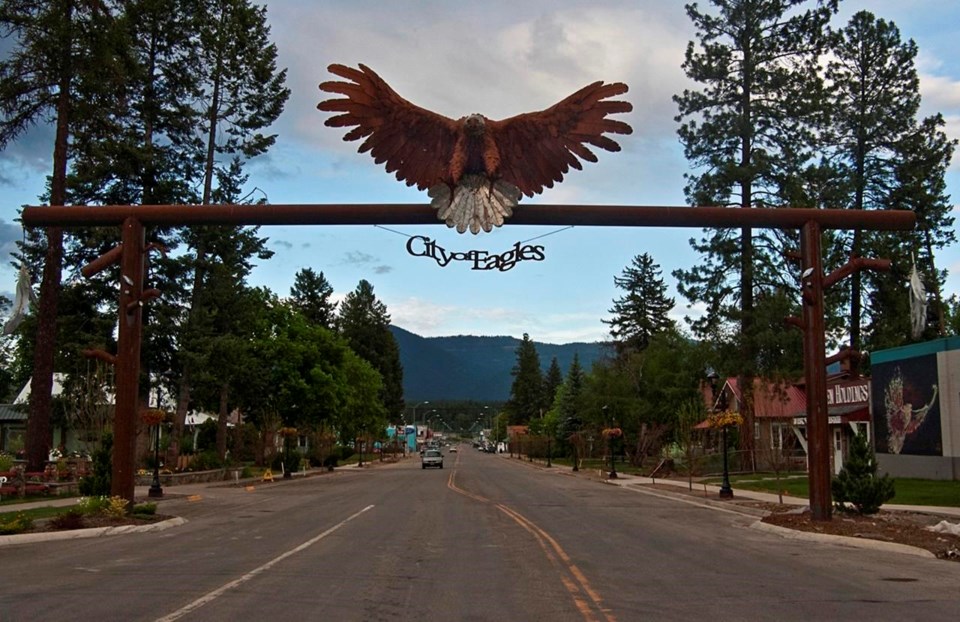BILLINGS, Mont. (AP) — A health clinic in a Montana town plagued by deadly asbestos contamination must pay the government almost $6 million in penalties and damages after it submitted hundreds of false asbestos claims, a judge ruled.
The 337 false claims made patients eligible for Medicare and other benefits they shouldn't have received. The federally funded clinic has been at the forefront of the medical response to deadly pollution from mining near Libby, Montana
The judgement against the Center for Asbestos Related Disease clinic comes in a federal case filed by BNSF Railway in 2019 under the False Claims Act, which allows private parties to sue on the government’s behalf.
BNSF — which is itself a defendant in hundreds of asbestos-related lawsuits — alleged the center submitted claims on behalf of patients without sufficient confirmation they had asbestos-related disease.
After a seven-person jury agreed last month, U.S. District Judge Dana Christensen said in a July 18 order that he was imposing a stiff penalty to prevent future misconduct.
Christensen said he was concerned in particular that the clinic's high-profile doctor, Brad Black, had diagnosed himself with asbestos-related disease and that a nurse signed off for benefits for her own mother.
The judge also cited evidence at trial of high rates of opioid prescriptions from the clinic for people who may not have had a legitimate asbestos-related diagnosis.
The clinic demonstrated “a reckless disregard for proper medical procedure and the legal requirements of government programs,” the judge wrote.
As instructed by the law, the judge tripled the $1.1 million in damages found by the jury, to almost $3.3 million, and imposed $2.6 million in additional penalties.
The judge awarded BNSF 25% of the proceeds, as allowed under the False Claims Act. Federal prosecutors previously declined to intervene in the case, and there have been no criminal charges brought against the clinic.
The clinic's attorneys appealed the jury's verdict to the 9th U.S. Circuit Court of Appeals on Thursday. Clinic director Tracy McNew has said the facility could be forced into bankruptcy if forced to pay a multimillion-dollar judgement.
McNew and Black did not immediately respond to messages Saturday seeking comment.
The verdict also could harm the clinic's reputation and potentially undermine lawsuits by asbestos victims against BNSF and others that courts have held liable for contamination that’s turned Libby into one of the nation’s deadliest polluted sites. BNSF operated a railyard in town through which asbestos-tainted vermiculite was transported from the nearby W.R. Grace Co. mine.
Railway spokesperson Lena Kent said the clinic's actions wasted taxpayer money while diverting resources from people in legitimate need.
“The focus of this trial was on CARD’s treatment of the hundreds of people who were not sick,” Kent said. “It’s a sad chapter in this saga that this trial was necessary to restore the focus on those who are truly impacted and who should continue to have access to the benefits and care they deserve.”
The Libby area was declared a Superfund site two decades ago following media reports that mine workers and their families were getting sick and dying due to hazardous asbestos dust.
Health officials have said at least 400 people have been killed and thousands sickened from asbestos exposure in the Libby area.
The clinic has certified more than 3,400 people with asbestos-related diseases and received more than $20 million in federal funding, according to court documents.
Hampering the clinic’s defense in the false claims case was a ruling that barred testimony from former U.S. Sen. Max Baucus of Montana. Baucus helped craft a provision in the Affordable Care Act that made Libby asbestos victims eligible for government benefits. He's said the clinic was acting in line with that law.
Asbestos-related diseases can range from a thickening of a person’s lung cavity that can hamper breathing to deadly cancer.
Exposure to even a minuscule amount of asbestos can cause lung problems, according to scientists. Symptoms can take decades to develop.
Matthew Brown, The Associated Press



